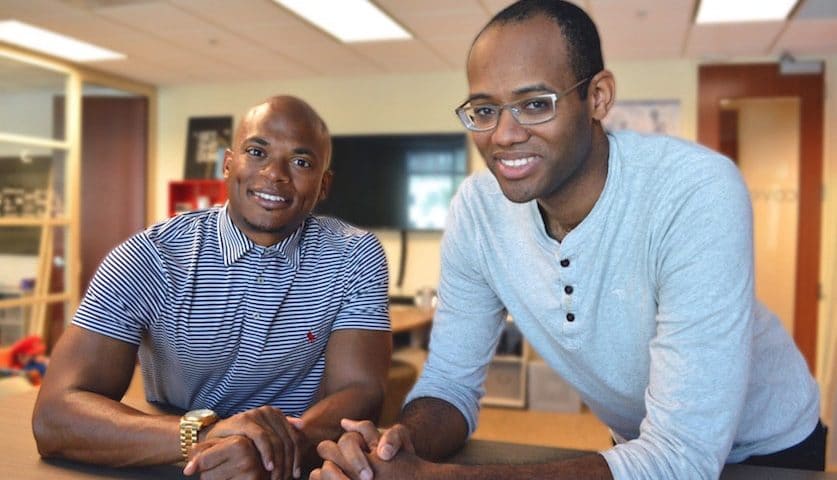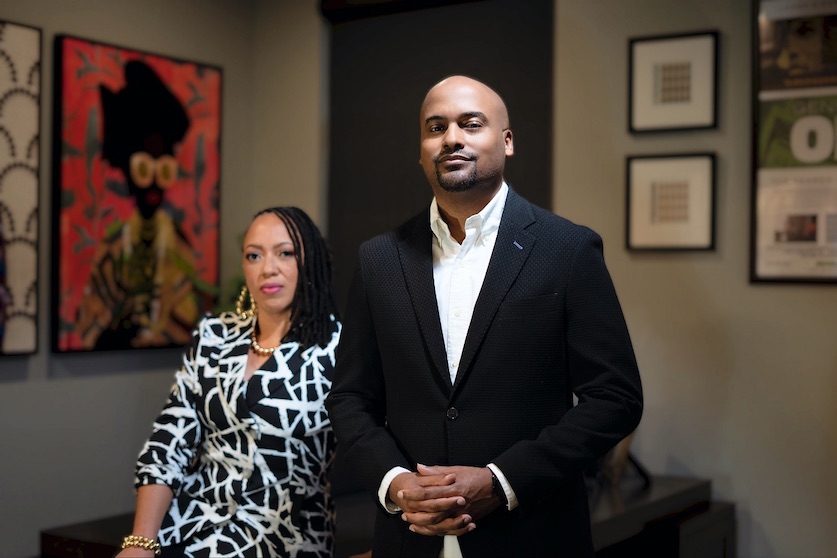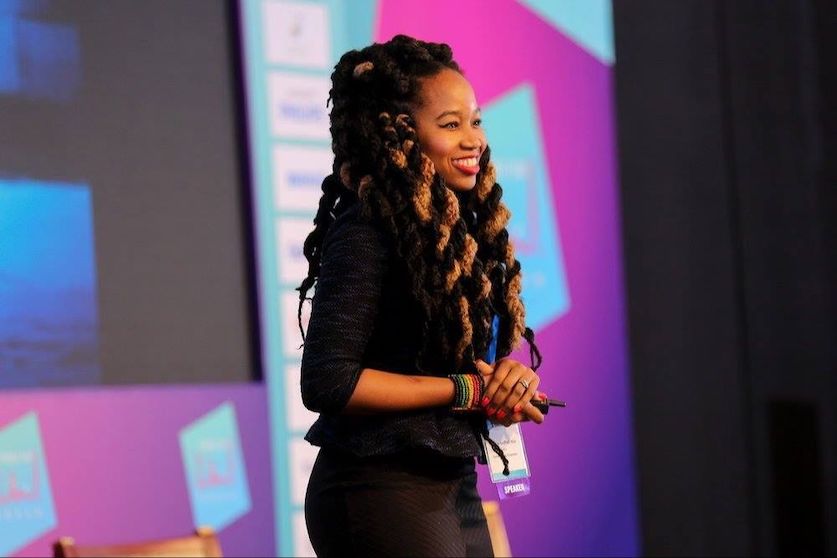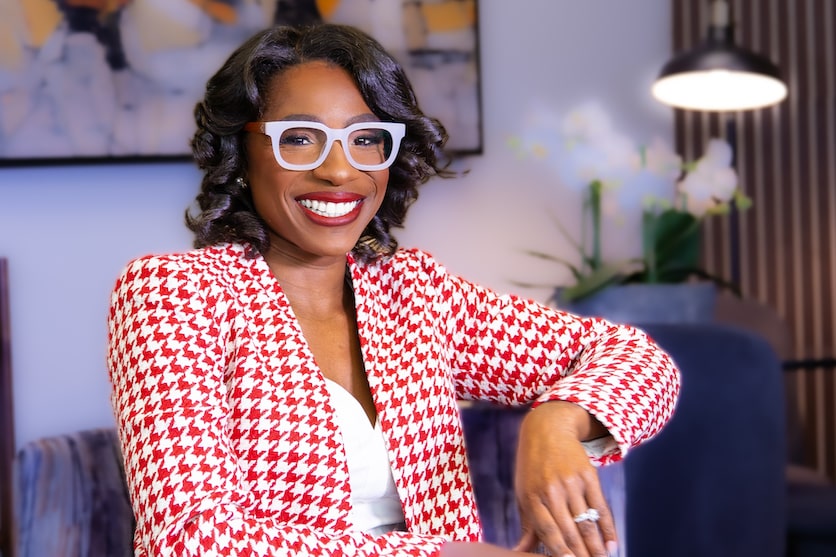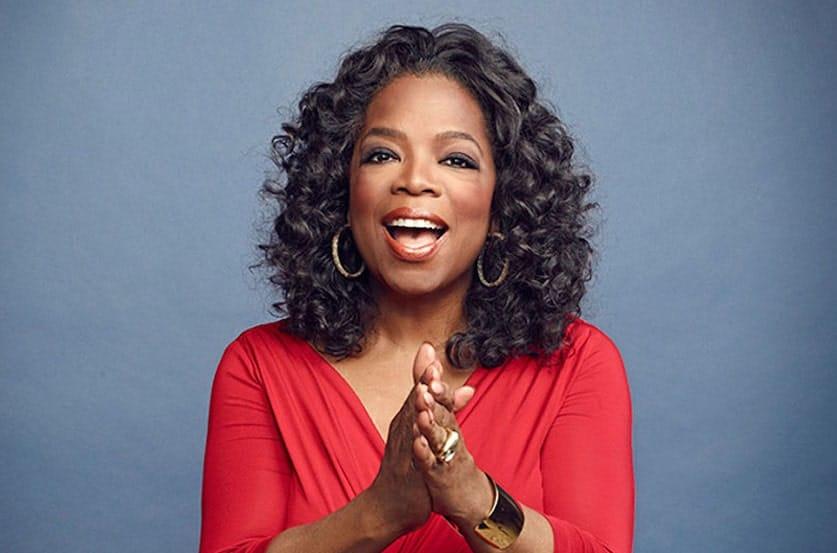
What is IPv6?
August 18, 2017
Startup Picture Day heads to Switchyards in Downtown Atlanta
August 22, 2017For M. Cole Jones and Michael Flanigan, the perfect recipe for creating a collaborative growth company was a common interest in disruptive thinking and Flanigan’s homemade banana bread. After meeting in 2012, the duo forged a partnership that would lead them to create a global digital experience for Delta and teach Snapchat Inc. how best to be more diverse. Founded in 2013, covello focuses on making companies the best they can be from the inside out by turning ideas into measurable outcomes. Their team does everything from solving diversity issues to creating new prototypes. “We create that bridge and relationship with large corporations to help them disrupt,” Jones says.
The concept for covello came from enrichment sessions that the pair held with entrepreneurs. During each meet-up, the two seasoned entrepreneurs helped other founders slow down and become more efficient. After their fourth session, they realized that startups need help connecting with other larger companies. Jones divulged that “[Corporations] have money and resources but they can’t move fast. Startups have the ability to move fast but don’t have the resources, so how can they work together? We felt as though we could create a company to solve that problem.” Through working with entrepreneurs, the friends soon realized that they could help firms use resources they already have to fulfill their needs. By combining those two principles, covello was born. Friends and family initially believed covello, an Atlanta-based company founded on relationships, wasn’t scalable, especially from two founders with no corporate experience. Jones and Flanigan soon proved them wrong.
Just three months after the launch, the pair took on AT&T as a client, making prototypes and platforms to help small businesses. In addition to Delta and Snapchat, they have been rolling out their services for multinational companies like Chick-fil-A, Panasonic, Microsoft, and Harman International. With more than a dozen services on offer, ranging from Jam Sessions, which give companies the opportunity to bounce ideas off of each other, to Hackathons and Think Tanks, the duo tries to spur their clients to think outside the box. Through their programs, they expose their clients to new perspectives and ways of thinking. Jones and Flanigan observed that companies often times hit a wall when trying to innovate because they have been doing the same thing with the same kinds of people for decades. “You’re not going to get anything different if you do the same thing,” Flanigan said of the issue they typically experience with larger corporations. To get different results, covello pushes firms with one or more of their many programs.
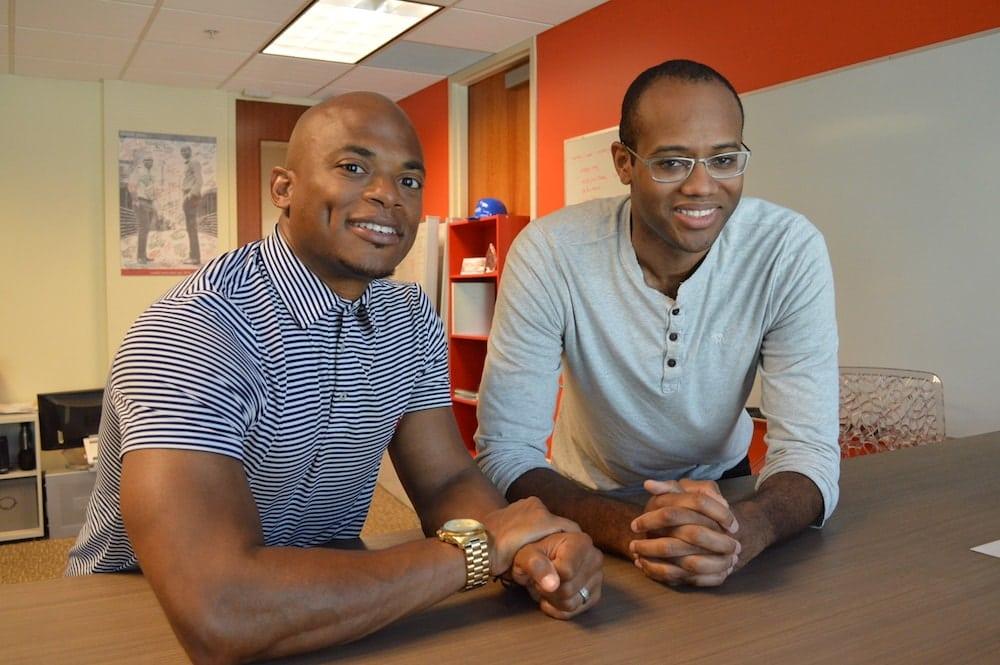
covello cofounders M. Cole Jones and Michael Flanigan at the office in Atlanta [photo credit: Kennedy Crenshaw]
“Corporations have money and resources but they can’t move fast. Startups have the ability to move fast but don’t have the resources, so how can they work together? We felt as though we could create a company to solve that problem.”
Over the last year, major corporations have been taking steps to become more inclusive. Twitter’s just hired Candi Castleberry, an African-American woman, to spearhead their Diversity and Inclusion division. Spotify and Google now host career fairs and conferences at Historically Black Colleges and Universities, but to the covello founders, all of the time and effort is not solving the diversity problem in the tech industry. Jones explained, “most companies don’t have the bandwidth to be intentional with their diversity efforts” or an adequate budget. While hiring people of color may solve superficial issues, Jones and Flanigan think companies can do more to make an impact, but they do not have the time to figure out how best to be diverse and efficient, so that’s where covello steps in.
To sidestep the bandwidth dilemma, covello strives to use resources already available to companies. Flanigan says covello teaches firms the “important [thing] about diversity is the diversity of thought, so you want black people [and] Latin Americans. You want women; you want all this stuff across the board.” Creating diversity of thought can be as simple as having someone in the marketing department talk to someone in IT. Getting different perspectives makes people work together and prevents teams from making inefficient decisions. “Usually there are three people in a room using the same template they’ve used for the last 20 years” to make diversity decisions and “that’s not representative of any culture,” Flanigan explained.
Since companies from film to tech have been facing a backlash over the lack of diversity, Flanigan says the crucial next step is that “companies have to get closer [to consumers] and when you get closer, you actually have to have a conversation.” covello is designed to make companies interact with employees and their community to find solutions and make prototypes. Jones and Flanigan’s goal is to solve the root of the problem and build from the ground up instead of trying to control the symptoms of a company’s problem.
"Companies have to get closer to consumers and when you get closer, you actually have to have a conversation.”
To form a good foundation, covello helps the heart of their community first. Their first year of operating, they generated half a million dollars of revenue for small businesses. “Any person who will come in… and put in time with us, we’ll take care of them” Jones said of their mentality to support the startup ecosystem around them.
Jones and Flanigan will be the first to admit that they have not done everything right, but that has helped them reflect on what can be done better going into their 4th year. One of their biggest goals, according to Jones, “is to stay top of mind whether it’s a community engagement or it’s a client relationship.” Jones firmly believes that “there will always be room for us to grow and evolve.” Looking to the future, they want to become more selective about their clients, focus on helping Atlanta firms, and share their story of the ups and downs of two brothas creating a business based on dialogue and relationships.
Follow Kennedy Crenshaw on Twitter@kennedy_crensha
For a more in-depth look into M. Cole’s story take a look at this video.


